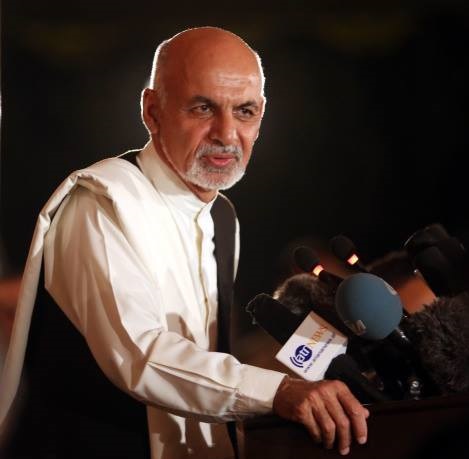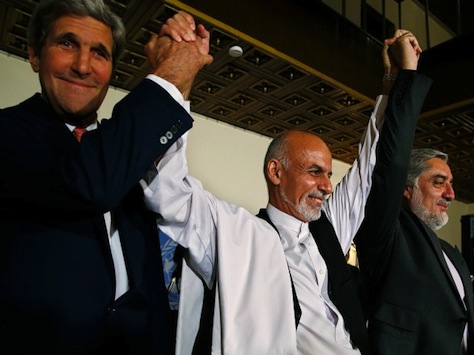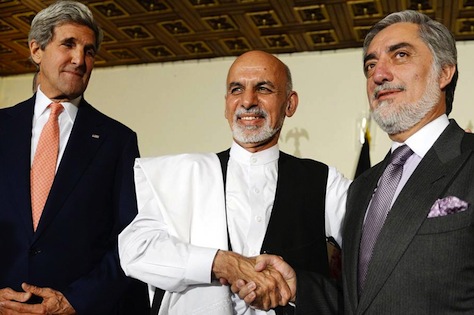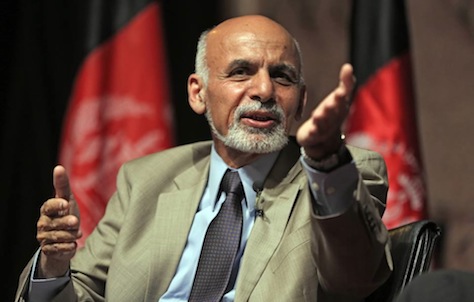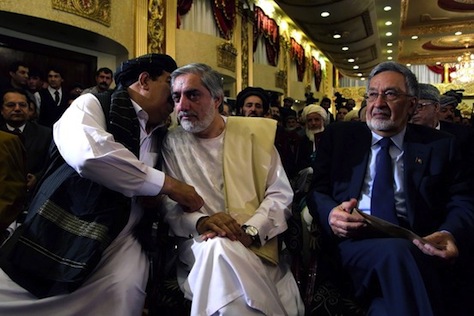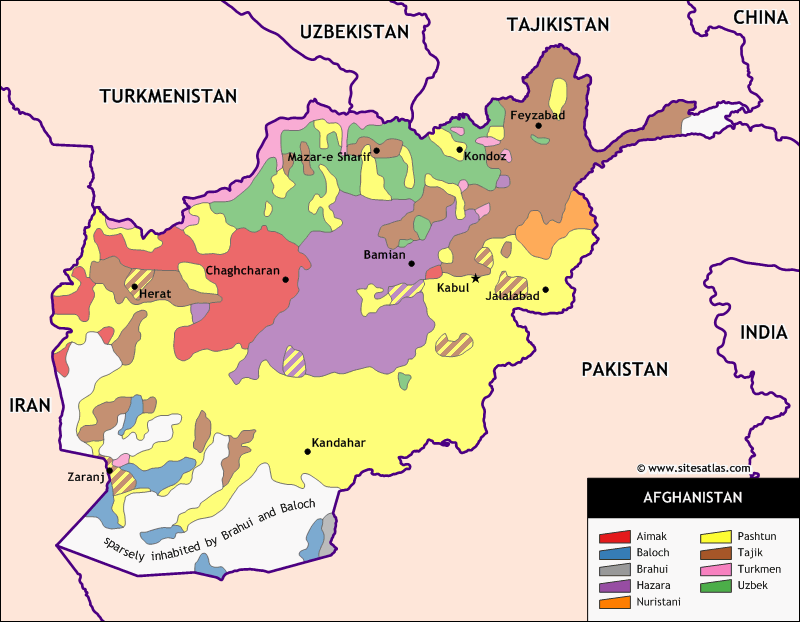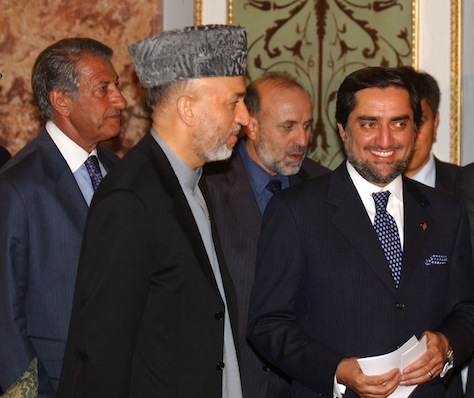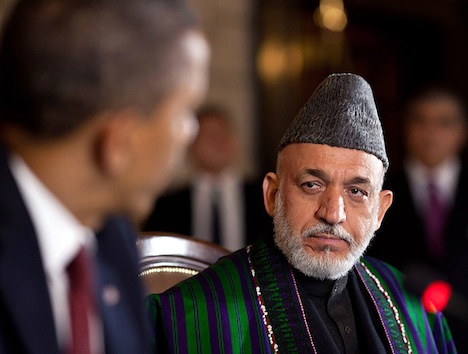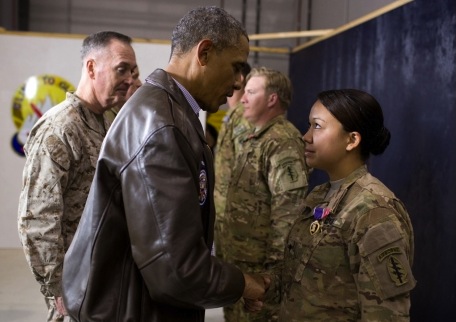
US president Barack Obama earlier today announced that while most of the US military forces in Afghanistan, which currently number around 35,000, will leave the country later this year, a force of 9,800 will remain — and could remain through 2016.

It’s still possible that under a new bilateral security agreement, which US officials hope to conclude later this year with the administration of Afghanistan’s next president, small numbers of US forces will remain even longer. But Obama’s remarks make it clear that US hostilities, by and large, will be over by the time his successor is elected in November 2016:
“Americans have learned that it’s harder to end wars than it is to begin them,” he said. “Yet this is how wars end in the 21st century.”
Despite Mr. Obama’s attempt to draw to a close more than a decade of American military engagement in Afghanistan, the United States will continue to have thousands of troops engaged in lethal counterterrorism operations for at least two more years. He also acknowledged that the United States will leave behind a mixed legacy. “We have to recognize Afghanistan will not be a perfect place, and it is not America’s responsibility to make it one,” he said. “The future of Afghanistan must be decided by Afghans.”
In a June 14 runoff, Abdullah Abdullah, a former foreign minister, who is half Pashtun and half Tajik, will face Ashraf Ghani Ahmadzai, a former finance minister and World Bank official, who is Pashtun. After the first round of the election, Abdullah led with 44.94% to just 31.47% for Ghani. The outgoing president, Hamid Karzai, who has held the office since late 2001, has had increasingly difficult relations with the Obama administration, and he has refused to sign a status-of-forces agreement regarding future US security arrangements. Both Abdullah and Ghani, however, have rushed to assure Afghans that they will prioritize a US-Afghan security agreement.
* * * * *
RELATED: Afghanistan hopes for calm as key presidential election approaches
RELATED: Did Abdullah just with the Afghan presidency?
* * * * *
Abdullah, who recently won the support of the third-place candidate, Zalmai Rassoul, until recently Karzai’s foreign minister. Rassoul was widely seen as Karzai’s unofficial candidate, due to his recent role in the Karzai administration and the endorsement he won from Karzai’s brother. Rassoul won strong heavy in Kandahar province, Karzai’s home power base.
That makes that Abdullah has the ethnic and tribal arithmetic on his side, making his the strong favorite to win the June 14 runoff. Pashtuns, which comprise around 42% of Afghanistan’s population, have traditionally held political power in Afghanistan, including Karzai, within the Taliban and the Afghan monarchy that ruled the country for nearly three centuries until its overthrow in 1973.
Tajiks, which comprise around 27% of the population, are predominant throughout northeastern Afghanistan, and are the largest ethnic group in Kabul. They played a predominant role in the Northern Alliance that assisted US forces topple the Taliban government in 2001.
Not everyone, however, is sanguine about Afghanistan’s post-US future. Max Fisher, writing at Vox, takes a pessimistic line over the eventual drawdown:
The bad news is that the administration is tacitly confirming what everybody already knew: the war against the Taliban is not one that the US believes it can win, so we’re going to stop trying. That war, Afghanistan’s war, is going to continue….
The Afghan military has been problematic from the beginning: it runs on US funding and is plagued with desertions. Another year of US help is not likely to turn them into a victory force. President Obama’s declaration that this will help the Afghan military “stand on its own” is just not very likely.
But the Taliban was never likely to strike a peace deal with the United States, and despite attempts at peace talks, it’s hard to imagine that there’s any cultural or political space for the Taliban and its insurgent allies to engage in seriously negotiations with the United States.
That’s not the same, however, as an Abdullah administration or a Ghani administration striking a deal with the Taliban. Continue reading Why there’s reason for optimism about the Afghan troop drawdown →
![]()
